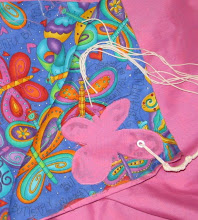- Shoveling the blanket of dirt into the grave of a loved one is one of the few acts of kindness that can never be repaid. However, the stone-cold sounds the first shovels of dirt make when they hit the coffin are bone-chilling. My father had expressed many times (at the many funerals we attended together) that he never wanted my brother and I to participate in this ritual because he wanted to spare us from hearing that sound. As we prepared for my father's funeral, I wrestled with what to do ... I wanted to somehow give him a blanket, but still wanted to respect his wishes. Our Invented Ritual: sprinkling bird seed. In a sign of homage to his love of feeding the birds, and in respect of covering him with something natural, the immediate family sprinkled handfuls of sunflower seeds into the open grave. (Note: I did forewarn the cemetery director that if sunflowers pop out of the plot in a few years, he will know why!)
- Getting up from Shiva. When a loved one dies, the immediate family "sits shiva." At the end of the seven days of mourning, traditionally the family would "get up" from shiva by taking a ceremonious walk around the block to signal to the community that they are returning to daily activities. First of all, my family chose to officially receive guests only for three days of shiva. The remaining days of the week were spent mostly just as family, trying to deal with our physical exhaustion and returning my nephews to a more normal routine. On the sixth day, I flew to Los Angeles (from St. Louis where my family is), where I would be attending a conference the following day. My Adaptive Ritual: Havdallah. Typically the ritual of Havdallah is enacted at the end of Shabbat to signify the separation (in Hebrew: havdil) of the holy of Shabbat and the rest of the week. On this particular Saturday night (which was the 6th day of Shiva) I was very lucky to be welcomed back into a community I once led in Orange County, CA for their Shabbaton retreat Havdallah ceremony. For me, it couldn't have been more appropriate and meaningful transition. The light of the candle reminding me about the light that I will see at the end of this darkness, the spices providing me with a smell of sweetness to hold onto as I transition into the next stage of mourning, and sweet juice to nourish me physically. This particular Havdallah was a true separation between the immense trauma and sadness I had been enveloped in the previous two weeks (one week my dad was in the hospital and the week of Shiva), and the future ahead of me. As I transition through the next stages of mourning, I will be incorporating Havdallah (no matter the day of the week).
- When a parent dies, it is customary for a child to attend a minyan (prayer service with a minimum of 10 people) every day to recite Kaddish for 11 months. First of all, this is not a ritual my dad connected with. It isn't something he did when his own parents died, and it isn't something that he would want me to do as an obligation (only if it was something I wanted to do because it helped me). Secondly, part of the idea is getting the mourner to participate in community so they are not alone. In my job, in my life, I am surrounded by Jewish community 24/7. Third, I am not a big t'filah (prayer) person and making my way every day (especially when I travel) to participate in a prayer service, only out of Jewish obligation, would not be healing for me. But I knew I needed something - wanted some sort of daily ritualized encounter with Kaddish. My invented ritual: to read and journal each day in a book by Rabbi Kerry Olitzy called Grief in our Seasons. Each night before I turn out my lights, I read the daily entry in the book and take a few moments to journal my thoughts in the space provided. I then recite Kaddish (which is provided in the book). This provides my much-needed daily ritual and provides me closure to a day full of thoughts and emotions about losing my dad.
As this mourning process continues, I will share other adapted rituals in the hopes that when other people experience a loss of their own, they not only find comfort in the prescriptions of Jewish mourning, but that they feel empowered to adapt and create rituals that help them heal.

In loving memory:
David Faintich
David Meyer ben Ya'acov v'Toiba
December 18, 1943-October 16, 2009

1 comment:
Robyn -
This struck home in more ways than you know. Although I am more likely to follow the traditions more closely as prescribed because they were very important to my father, I do believe it is important to adapt them to what works for each individual. Thank you for sharing your path through this process. Even after over 4 years, it helps a lot.
Sending love to help with the healing,
El
Post a Comment